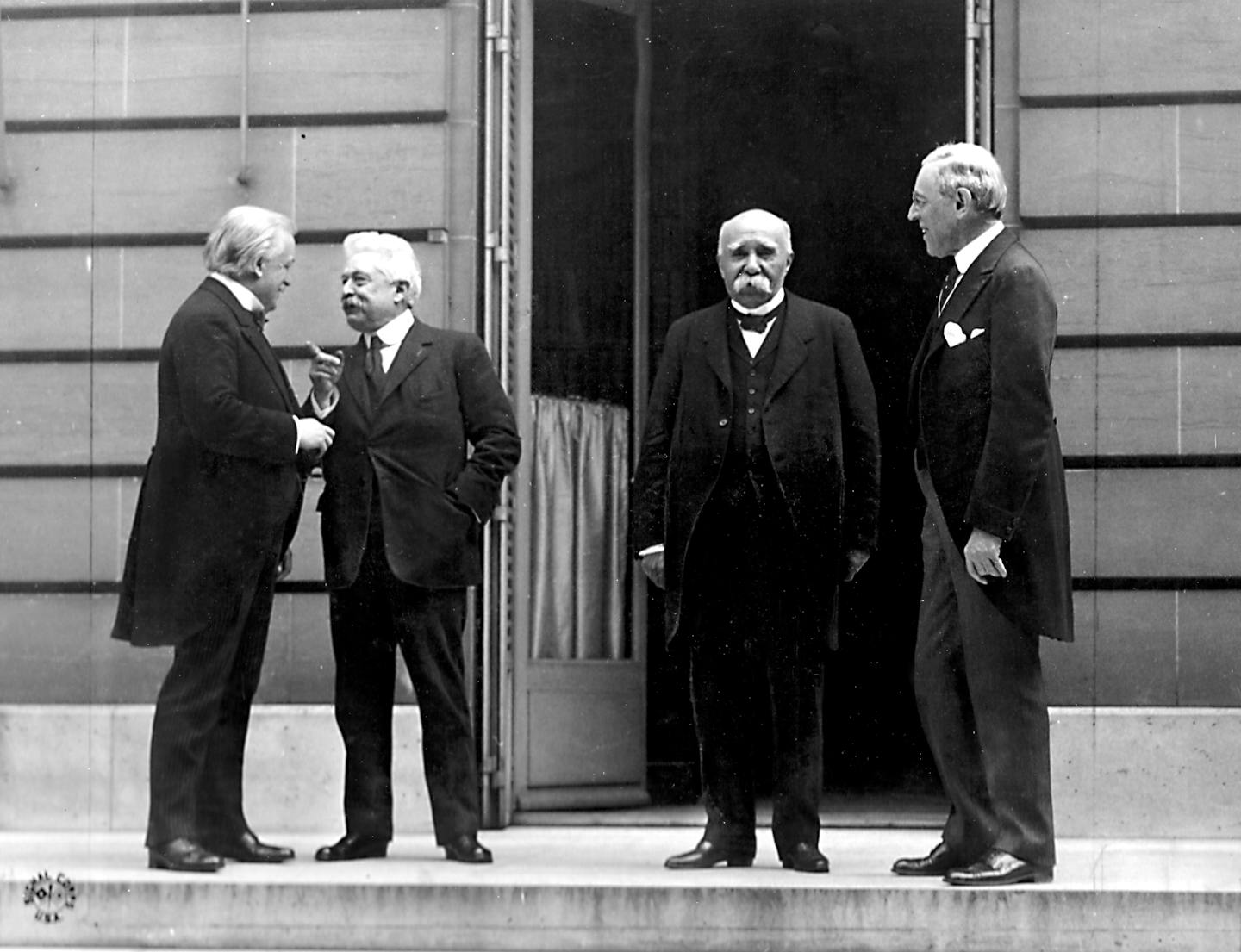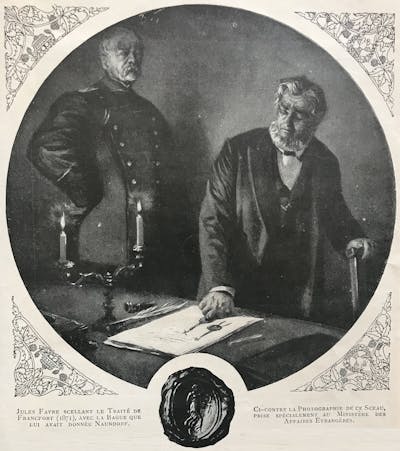In a recent Meet the Press interview, the vice-president of the US, J.D. Vance, argued in relation to Russia’s illegal invasion of Ukraine: “This is how wars ultimately get settled. If you go back to world war two, if you go back to world war one, if you go back to every major conflict in human history, they all end with some kind of negotiation.”
Vance was responding to a question from the NBC news anchor, Kristen Weller, who asked: “If Russia is allowed to keep any of the territory that it illegally seized, what message does that send to China? Does it give China a green light to invade Taiwan? Does it give Russia a green light to invade other European countries, which is what your European allies are concerned about?”
Vance’s response was clearly his way of saying that the war in Ukraine would have to end in a negotiation, with the suggestion that some sort of territorial concessions on Ukraine’s part would naturally flow from that process.
But he was wrong. In fact, few major wars in recent history have ended in negotiation. Let’s take Vance’s two examples. The second world war in Europe ended with the Soviet capture of Berlin and Germany’s dictator dosing himself with cyanide and putting a bullet in his own brain. The war against Japan ended with Hirohito’s empire on the verge of famine, its infrastructure destroyed by American fire. The Soviets had invaded Manchuria, Sakhalin and the Kuril Islands, and were threatening to invade Hokkaido. To cap it all, the Americans were also threatening to invade Kyushu and then Honshu. But before that came to pass, the US deployed superweapons. Japan surrendered just days after the atomic bombings and the Soviet intervention.
As for the first world war, that ended with an armistice on November 11 1918 following the collapse of the German armed forces. The peace treaty, the Treaty of Versailles, was later signed in 1919. The Germans were not invited to those negotiations and the terms of the treaty were imposed upon them. This led to the partition of Germany, the loss of its empire, its military reduced to a rump, and a reparations bill of 20 billion gold marks (£6.6 billion).

So, which major wars does Vance mean? Contrary to his pronouncements, clearly not the first or second world wars. If we look at the major wars a century prior, do we see what he is talking about?
The Napoleonic wars came to an end with coalition forces engaged in a full-scale invasion of France and entering Paris on March 30 1814. Napoleon abdicated on April 6 and was exiled to Elba. He escaped in 1815, returned to arms and was defeated at Waterloo. He was exiled again, even further away, to Saint Helena. Meanwhile after the French capitulation, a treaty was signed in Paris in November 1815, imposing a large fine, a foreign occupation and the loss of territory. So presumably Vance wasn’t referring to these conflicts.
Perhaps Vance was thinking of some of the rather smaller 19th-century wars which ended with, at least nominal, negotiated settlements.

The Crimean war ended with another Treaty of Paris in 1856 and involved Russia agreeing to the neutrality of the Black Sea and the loss of the territories it had captured from the Ottoman empire.
The Franco-Prussian war of 1870-71 ended with the Treaty of Frankfurt in 1871, which saw France lose territory in Alsace and Lorraine. Ultimately, these wars ended with negotiated capitulation.
Negotiation or capitulation?
“Negotiation” is what Vance says regarding Russia and Ukraine. But the administration he serves has already suggested that any negotiation will involve Ukraine giving up land. President Donald Trump came away from the recent summit in Alaska talking about Ukraine giving up its territory, despite the fact that territory is not something that can simply be negotiated away over the heads of the Ukrainian people. This all sounds rather more like Ukrainian “capitulation” rather than a “negotiation”.
A friend from the Ukrainian diaspora said to me recently: Ukraine will be “forced to erase itself to make Russia happy, and that has been happening for hundreds of years”. They, as she noted, have always refused. Contrary to Vladimir Putin or Vance’s plans, the Ukrainians have their own ideas about their national destiny.
Vance is wrong for another reason. Ukraine’s defeat would represent perhaps the greatest US foreign policy disaster since the Vietnam war. In 2025 the US still claims to be the world’s only true superpower; its support and weaponry has helped keep Russia from the gates of Kyiv without firing a shot or placing a single US soldier on the ground.
Russia, by contrast – long a rival for the superpower mantle – has endured multiple recent foreign policy setbacks. Not least of these is the failure to dismantle Ukraine, which was supposed to take a matter of days. But also, the collapse of its client regime in Syria and Israel’s humiliation of Iran, another longstanding ally.
Things do not need to be as they are. Trump and Vance could assist Ukraine securing the just peace its president, Volodymyr Zelensky, is calling for. They could allay European fears about Russia by making it clear to Putin that aggression will not be rewarded. But from everything they’ve said, this is not the path they want to take. Instead, while Vance misinterprets history, Ukraine continues to bleed.
This article is republished from The Conversation, a nonprofit, independent news organization bringing you facts and trustworthy analysis to help you make sense of our complex world. It was written by: Chris Smith, Coventry University
Read more:
- Forcing Zelensky to hand Putin Ukraine’s ‘fortress belt’ in Donetsk will lose it the war
- Alaska summit: no deal agreed at Trump-Putin meeting but land swap for ceasefire still on the table
- Alaska summit: why Donald Trump should heed the lessons of Munich 1938 when he meets Putin
Chris Smith does not work for, consult, own shares in or receive funding from any company or organisation that would benefit from this article, and has disclosed no relevant affiliations beyond their academic appointment.


 The Conversation
The Conversation
 Reuters US Top
Reuters US Top America News
America News AFP Top News
AFP Top News Associated Press Top News
Associated Press Top News USA TODAY National
USA TODAY National WWL-TV
WWL-TV